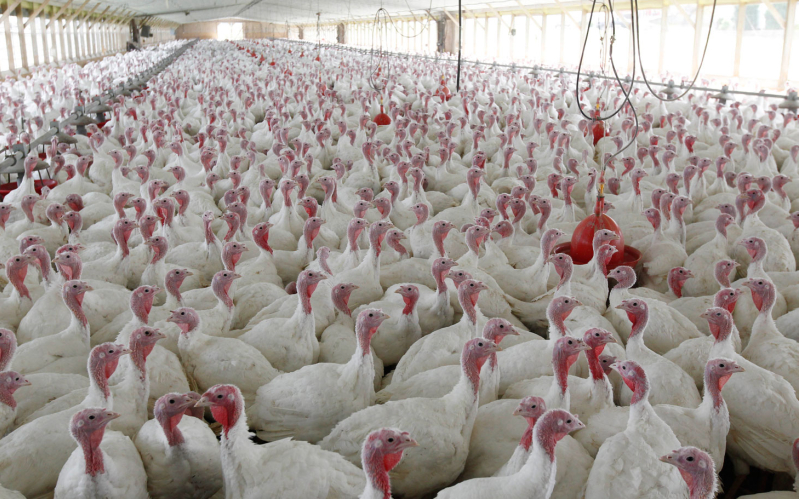
Overuse of antibiotics in animal feed is making it harder for doctors to treat life-threatening infections in young children, a report from U.S. pediatricians warns.
The report from the American Academy of Pediatrics (AAP) says the widespread practice of giving antibiotics to healthy livestock to promote growth and prevent disease among animals is making the drugs ineffective when they are needed to treat infections in people.
"The antibiotics that are fed to the animals lead to the development of antibiotic resistant bacteria in the animal," study co-author Dr. Theoklis Zaoutis of the University of Pennsylvania and the Children's Hospital of Philadelphia said by email. "These bacteria can then be spread to other animals, the environment and to humans."
More than two million Americans become ill with antibiotic-resistant infections each year, and 23,000 die as a result, Zaoutis and co-author Dr. Jerome Paulson report in the journal Pediatrics. Paulson formerly chaired the executive committee of the AAP's Council on Environmental Health,
They estimate that national costs to the U.S. healthcare system attributable to antibiotic resistant infections run from $21 billion to $34 billion annually.
Infants and children are affected by antibiotic-resistant bacteria in the food supply, direct contact with animals and exposure in the environment, the researchers report.
For most infections, incidence was highest among children under age five, according to data the researchers cited from Center for Disease Control and Prevention's Foodborne Diseases Active Surveillance Network.
While people can't get antibiotics without a prescription, animals can, the researchers point out.
Pediatricians and parents can help combat antibiotic resistance by avoiding use of antibiotics to treat colds or other viral illnesses.
Parents and other consumers may also help discourage the use of antibiotics in livestock feed by choosing to buy only organic products or foods labeled as "raised without antibiotics," said Urvashi Rangan, executive director of the Consumer Reports Food Safety and Sustainability Center.
"Consuming foods from animals produced without the routine use of antibiotics is one important step in reducing personal risk; so is cooking our foods thoroughly," Rangan, who wasn't involved in the report, said by email.
But the long-term solution to antibiotic resistance may require changes in the way we produce animals for food, including stopping the use of antibiotics and other drugs in healthy animals and also implementing better drug-free hygiene and management practices to curb disease risk on farms, Rangan added.
Even purchasing organic doesn't guarantee that there will not be resistant bacteria present, noted Timothy Landers, an antibiotics researcher at Ohio State University in Columbus.
"From a farmer's perspective, the use of antibiotics helps ensure that food is safe, nutritious and affordable," Landers, who wasn't involved in the study, said by email. "What we have lacked is a coordinated, integrated approach to antibiotic resistance including experts on human health, food production animal health and the environment."







